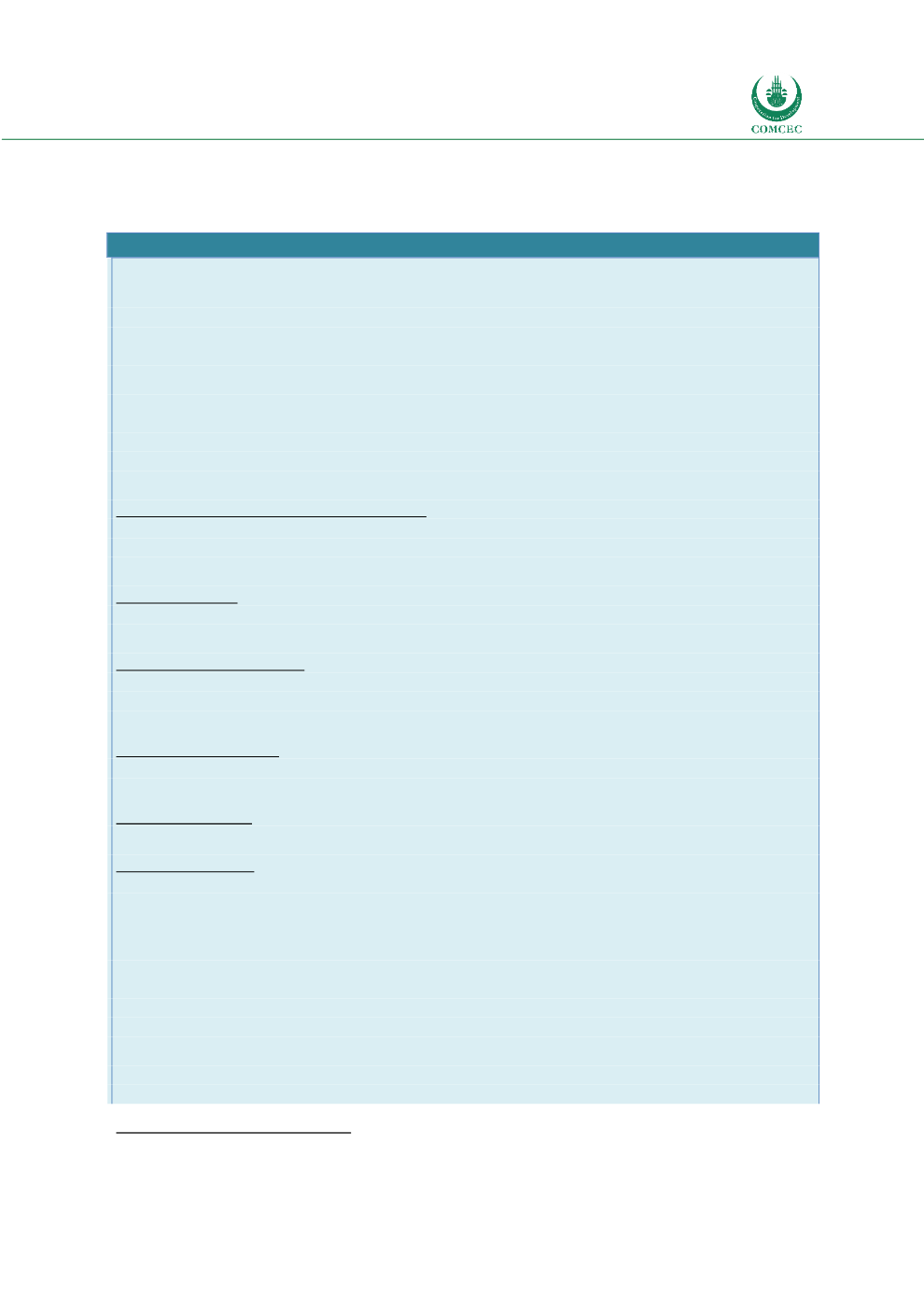

COMCEC Trade Outlook 2019
47
According to this measure, performance of some of the OIC countries
29
is below average while
some OIC countries such as UAE, Malaysia, Bahrain, Qatar, Jordan and Oman performed better.
Box 2: WTO Agreement on Trade Facilitation
One of the main outcomes of the Doha Development Round is the adoption of Bali Package which
comprises 10 Ministerial decisions/declarations on trade facilitation, development and agriculture.
Trade Facilitation Agreement (TFA) mainly brings measures to eliminate barriers against
international through streamlining and simplification of customs procedures. The Agreement has
two sections which include provisions for expediting the movement, release and clearance of goods
and differential treatment provisions for developing and least-developed countries respectively.
In regards to differential treatment, TFA enables developing and least-developed countries to select
three categories for provisions namely A, B and C based on their readiness for implementation. WTO
also aims to provide technical assistance and capacity building programs to developing and least-
developed countries through collaboration with donor Member States to facilitate implementation
of the Agreement. Some of the important arrangements of the Agreement are as follows:
Publication and Availability of Information: Agreement requests each Member States to publish
information in a non-discriminatory and easily accessible manner related to Customs Procedures
such as applied rates of duties/taxes, laws, regulations and administrative rulings, import/export
restrictions, appeal procedures, rules of classifications etc.
Advance Rulings: Member States are expected to issue advance ruling, which in brief is a written
decision provided by Customs Authority to an applicant prior to importation of goods, in a
reasonable, time bound manner while containing all necessary information.
Right to Appeal or Review: Agreement envisages that each Member States shall enable any person,
whom has a legal case with the Customs Authority, to appeal or request a review of the case by an
upper administrative authority. It is also requested from Member States to ensure that
appeal/review procedures are carried out in a non-discriminatory manner.
Pre-Arrival Processing: Member States are requested to have procedures allowing submissions of
import documentation (such as manifests or other required information) prior to arrival of goods to
Customs for the sake of expediting release of goods upon arrival.
Electronic Payment: Moreover, Member States are expected to have electronic payment systems for
duties, taxes, fees and charges incurred upon importation and exportation.
Freedom of Transit: Agreement requests Member States to not seek, take or maintain any voluntary
restraints or any other similar measures on traffic transit. Moreover it is expected that traffic in
transit shall not be conditioned upon collection of any fees or charges imposed in respect to transit
excluding charges for transportation or administrative expenses related to transit.
According to the WTO, full implementation of the TFA is estimated to increase global merchandise
exports by up to $1 trillion per annum and reduce trade costs by an average of 14.3 per cent.
Moreover, the implementation of TFA will provide benefits in terms product and market
diversification. Developing countries estimated to increase the number of new products exported by
up to 20 per cent while increase the number of foreign markets by 39 per cent. Gains from the TFA is
estimated to be much bigger for LDCs.
TFA entered into force on 22 February 2017 when the Agreement has been ratified domestically by
the two-thirds of the WTO members. As of October 2019, 39 OIC Member States have ratified the
29
Please see Appendix Table 8
















